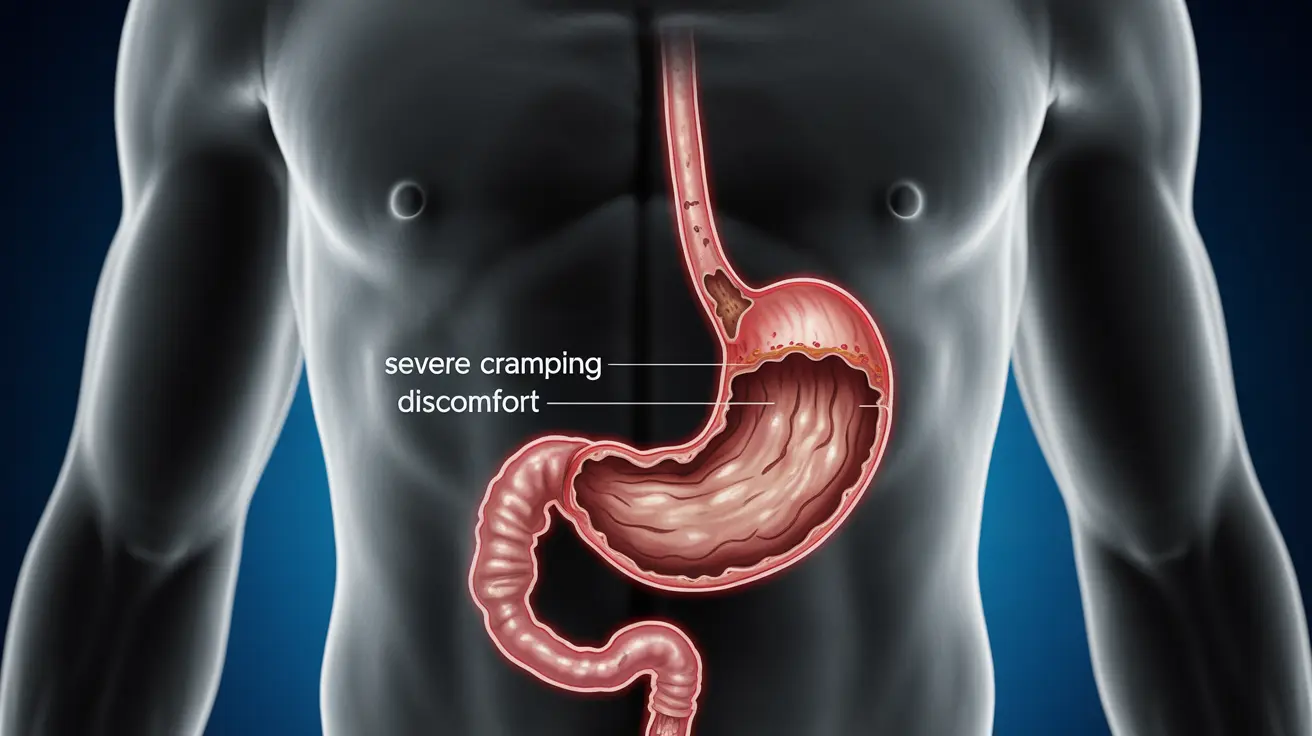A bacterial infection in the stomach, also known as bacterial gastroenteritis, can cause significant discomfort and concern. Understanding the symptoms, causes, and treatment options is crucial for managing this common condition effectively and knowing when to seek medical attention.
This comprehensive guide will help you identify the signs of a bacterial stomach infection, explore treatment options, and learn prevention strategies to protect yourself and your loved ones.
Key Symptoms and Warning Signs
Bacterial stomach infections often present with distinctive symptoms that can help differentiate them from other digestive issues:
- Severe abdominal cramping
- Frequent diarrhea, often containing blood or mucus
- Persistent vomiting
- High fever (typically over 101°F/38.3°C)
- Intense stomach pain
- Excessive sweating
- Dehydration symptoms
Distinguishing Bacterial from Viral Infections
Unlike viral gastroenteritis, bacterial infections typically cause more severe symptoms and may include:
- Higher fever
- More intense abdominal pain
- Bloody or mucus-containing stools
- Longer duration of symptoms
- More severe dehydration risk
Common Causes and Risk Factors
Several bacteria can cause stomach infections, with common culprits including:
- E. coli from contaminated food or water
- Salmonella from undercooked eggs or poultry
- Campylobacter from raw or undercooked meat
- Shigella from contaminated surfaces or food
High-Risk Situations
Certain circumstances can increase your risk of developing a bacterial stomach infection:
- International travel to areas with poor sanitation
- Consuming unpasteurized dairy products
- Poor food handling practices
- Weakened immune system
- Close contact with infected individuals
Treatment Approaches
Treatment for bacterial stomach infections varies depending on severity and specific cause:
Home Care Strategies
Many cases can be managed at home through:
- Adequate hydration with clear fluids
- Oral rehydration solutions
- Rest and dietary modifications
- Gradual return to normal eating
- Proper hand hygiene
Medical Treatment
Professional medical care may be necessary when:
- Symptoms persist beyond 3-5 days
- Severe dehydration develops
- High fever continues
- Blood appears in stools
- Extreme abdominal pain occurs
Prevention Methods
Preventing bacterial stomach infections involves several key practices:
- Regular handwashing with soap and water
- Proper food handling and storage
- Thorough cooking of meats and eggs
- Avoiding cross-contamination in the kitchen
- Using safe water sources
- Regular cleaning of food preparation surfaces
Frequently Asked Questions
What are the symptoms of a bacterial infection in the stomach, and how do they differ from viral gastroenteritis? Bacterial infections typically cause more severe symptoms including higher fever, bloody diarrhea, and intense abdominal pain. Viral infections usually cause milder symptoms and resolve more quickly.
How can you treat bacterial gastroenteritis at home, and when should you seek medical attention? Home treatment includes rest, hydration, and dietary modifications. Seek medical attention if symptoms are severe, persist beyond 3-5 days, or include bloody stools, severe pain, or signs of dehydration.
What are the common causes of bacterial infections in the stomach, and how can they be prevented? Common causes include contaminated food or water, poor hygiene, and certain bacteria like E. coli and Salmonella. Prevention includes proper hand washing, safe food handling, and avoiding high-risk foods.
Are antibiotics usually needed to treat bacterial gastroenteritis, or are there other treatment options? Antibiotics aren't always necessary and are prescribed only for certain bacterial infections. Many cases resolve with supportive care, rest, and proper hydration.
How can you avoid dehydration when experiencing symptoms of bacterial gastroenteritis, and what are the signs that you need urgent medical care? Prevent dehydration by drinking plenty of clear fluids and using oral rehydration solutions. Seek urgent care if you experience severe thirst, dark urine, dizziness, or decreased urination.




